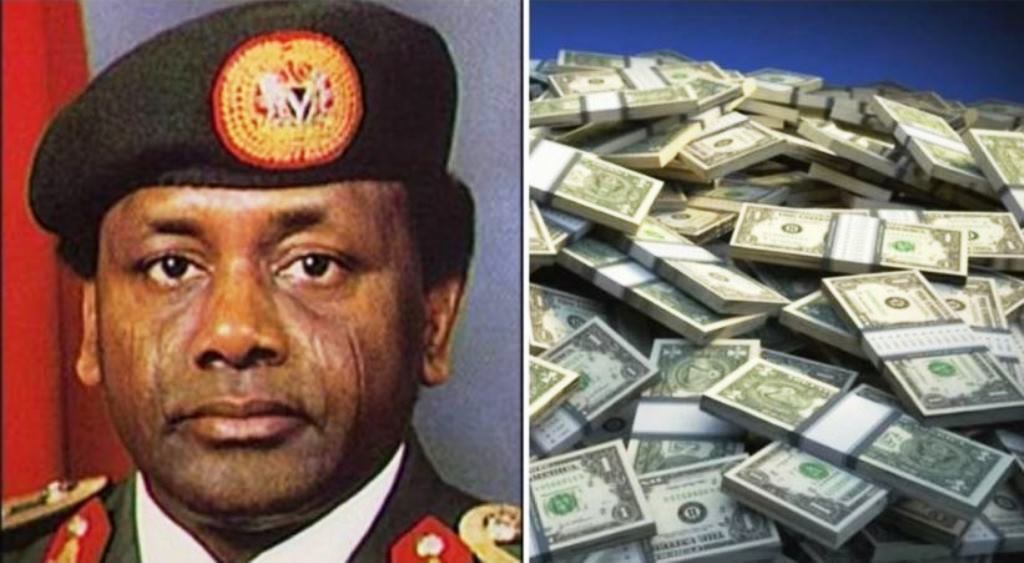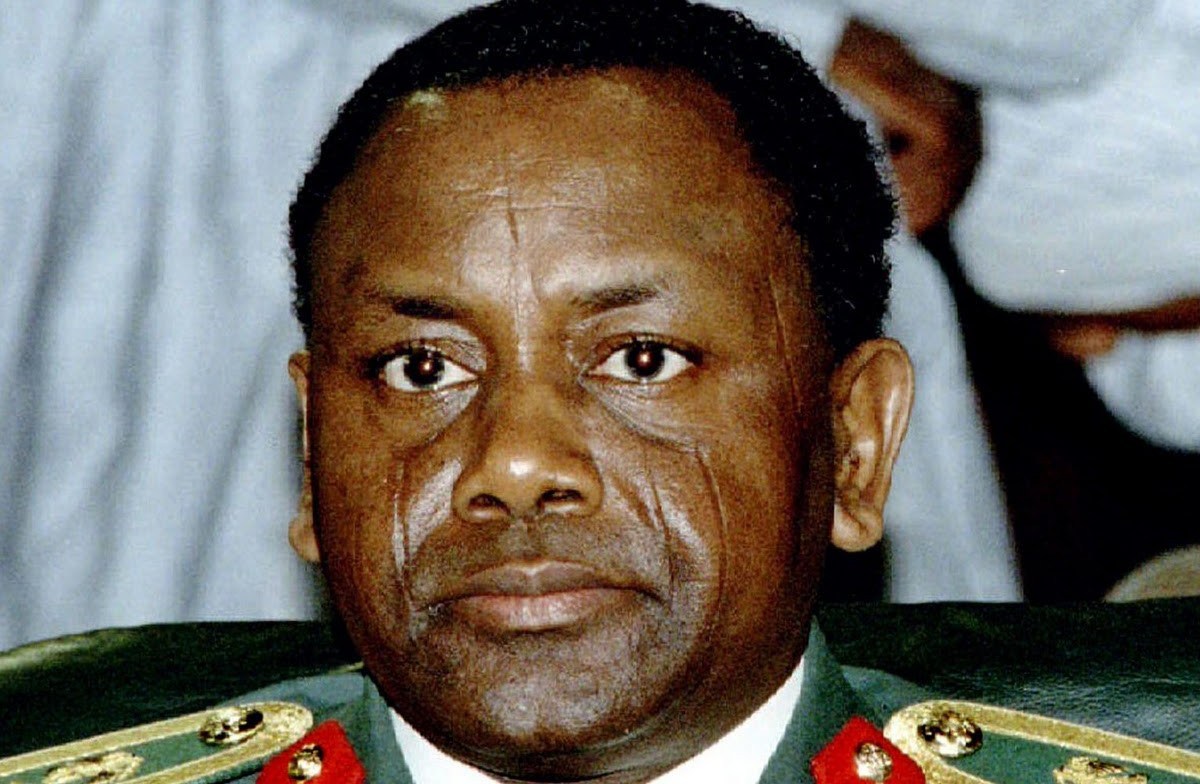By Godwin Etakibuebu
Last week, in this column, facts of how General Sani Abacha, a former Military Head of State, looted massively from the Nigerian treasury were presented.
And first evidences produced [last week] were that of President Muhammadu Buhari, the current president of the Federal Republic. His evidences, which translated into false, inaccurate or wrong, helped much in bringing the facts to the open that Sani Abacha stole pathologically.
This week, in this concluding work, we are presenting evidences of Major Hamza Al-Mustapha on the matter. Mustapha was the Chief Security Officer [CSO] to General Abacha, from the beginning to the very end. He was loyal and fully dedicated to the boss. He, like President Buhari, also defended Abacha that he never stole. Unlike President Buhari presentation of his defense, Mustapha admitted that money was stolen but not by Abacha. He concluded weirdly, “stressing that those who took over when the former Head of State [Sani Abacha] died were the thieves”. He even suggested that they [Abacha successors] that laundered the money stolen into foreign accounts under Abacha’s name. What a bizarre and unnatural defense!
Then I will present the strenuous journey in pursuing the thief, identifying where and where around the globe he secretly stored away the loot, taken by the Federal Government since 1999 till date. This narration shall include engagement of foreign governments and some notable individual, mostly within the legal communities, courts processes, agreements signed and other numerous endeavours of the Nigerian government, again since 1999, till date.
Stories of Abacha loot are lies’ – Al-Mustapha
Daily Post of February 7, 2020
Hamza Al-Mustapha, a former Chief Security Officer to late ex-Head of State, Gen. Sani Abacha, has revealed that he was forced to implicate President Muhammadu Buhari in a case of public funds looting. Al-Mustapha disclosed that he was forced to implicate the Petroleum Trust Fund, PTF, under the leadership of Buhari of looting.
Featuring on Voice of Nigeria, VOA, on Thursday, Al-Mustapha insisted that stories of Abacha looting public funds were lies, stressing that those who took over when the former Head of State died were thieves.
He stated that when late Abacha assumed leadership in Nigeria, there was about $200 billion in Nigeria’s foreign reserve. Al-Mustapha said some big names were angry with his former boss because he stepped on big toes while he was alive, hence the lies.
He said: “But before Abacha died, our foreign reserve rose to over $900 billion. “I was forced to implicate the leadership of the defunct PTF under President Buhari then, during the military era. “If there will be a genuine fight against corruption in Nigeria, many people will be arrested.”
Supreme Court rejects appeals to unfreeze Abacha’s accounts in Switzerland, UK, others.
Nigeria has recovered, repatriated $200m Abacha loot – Onyeama
The family of the late Head of State, General Sani Abacha, lost, on Friday, its bid to regain access to the many accounts held by its members in banks in the United Kingdom, Switzerland, Jersey, Liechenstein and Luxembourg blocked upon a directive by the Nigerian government in 1999.
A five-man panel of the Supreme Court held, in a judgment on Friday, that it was too late for the Abacha family to query the decision taken by the Federal Government of Nigeria in 1999, via a letter authored by the then Minister of Justice and Attorney General of the Federation (AGF), Kanu Agabi (SAN).
Justice Chima Nweze, who authored the panel’s lead judgment, in the appeal marked: SC/68/2010, held among others, that in view of the evidence presented by parties, he was left with no other options than to uphold the earlier concurrent decisions of the two lower courts (the Federal High Court, Kano and the Court of Appeal, Kaduna division), to the effect that the action was statute barred.
Justice Nweze was absent at the court’s proceedings on Friday, but had his lead judgment read by Justice Amina Augie, who quoted him as saying: “In all forms, with the eloquent submission of the respondents’ counsel, and submissions anchored on the admitted evidence, I have no hesitation in affirming the concurrent decisions of the lower courts. Accordingly, I hereby enter an order dismissing this appeal. I further affirm the concurrent findings and decisions of the lower courts. Appeal dismissed.”
Lawyer to the appellant, Reuben Atabo had in his brief of argument contended that the Federal Government acted without any legal backing. He also faulted the decisions of the two lower courts and argued that the FG, in asking foreign agents to freeze the accounts traced to the Abachas, acted on a law that was no longer in existence. He contended that the Banking (Freezing of Accounts) Act of 1st December 1983, which the FG relied on in September 1999 to demand the freezing of the accounts, was repealed on May 29, 1999.
“In other words, between September 1999 and October 2003 when the various acts leading to the freezing of the appellant’s accounts were carried out by the respondents, the Banking (Freezing of Accounts) Act of 1st December 1983 upon which the said acts were carried out or founded, was non-existent, same having been repealed on 29ths May, 1999,” Atabo said.
According to court documents, the then President, Olusegun Obasanjo, in December 1999, authorized the then AGF, Agabi, to request the Swiss authorities to freeze all bank accounts held in its jurisdiction by the late Head of State, General Abacha, his children, servants, agents and any other individuals or companies liked to them between 1993 and 1998.
The Nigeria government was also said to have requested the Swiss authorities to seize and detain all banking and other documents relating to the affected accounts, charge and prosecute all holders of such accounts, in order to recover and pay over to the Federal Government of Nigeria all monies falsely and fraudulently taken from the government and people of Nigeria.
Also, the FG was said to have engaged a foreign financial investigator, Enrico Monfrini of Hauchomann & Bottage in Geneva, Switzerland, to assist in recovering “all looted monies by General Abacha and his family members and other public servants and third parties who have used their position or participated as accomplices to misappropriate public funds.”
Following these steps by the Federal Government, the accounts of the Abachas found in Switzerland, United Kingdom, Jersey, Liechenstein and Luxembourg were frozen, an action members of the late Head of State challenged by filing a suit, marked: FHC/KN/CS/6/2004, on January 28, 2004 before the Federal High Court, Kano.
The suit filed on behalf of the Abachas by Alhaji Abba Mohammed Sani, had the President of the Federal Republic of Nigeria and the Attorney General of the Federation as respondents.
After hearing parties, the court rendered its judgment in 2006, in which it upheld the argument by the respondents to the effect that the case was not only statute barred, the plaintiff could not relitigate the same case that had been decided by the court’s Abuja division in suit: FHC/ABJ/CS/347/2001brought by Sulgrave Holdings Inc & 19 others against the FRN & three others.
Alhaji Sani appealed the decision of the Federal High Court, Kano at the Court of Appeal, Kaduna. But in its judgment on December 15, 2009, the appellate court upheld the decision of the trail court and dismissed the appeal, a decision Alhaji Sani again appealed to the Supreme Court, which the apex court dismissed on Friday.
Other members of the Supreme Court’s five-man panel that heard the appeal, include Justices Olukayode Ariwoola, Kudirat Kekere-Ekun, Augie and Paul Galumje, all agreed with the lead judgment as written by Justice Nweze.
‘ABACHA LOOT’: SWITZERLAND TO RETURN $320M TO NIGERIA
5 December 2017
The late ruler is suspected to have embezzled about $2.2bn from Nigeria’s central bank
The Swiss government has announced that it will return $320m (£240m) of the money allegedly stolen by Nigeria’s late military ruler Sani Abacha.
The money was frozen in 2014 by a Swiss court after a legal procedure against his son, Abba Abacha.
Originally deposited in Luxembourg, it is a fraction of the billions of dollars allegedly looted during his rule from 1993 to 1998.
Recovering the “Abacha loot” has been a major priority for Nigeria.
Although an agreement to repatriate the money was signed in March, the Nigerian Ministry of Justice, the World Bank and Switzerland have been grappling with legal complications surrounding the return of the money, says the BBC’s Stephanie Hegarty in Abuja.
However an agreement setting out how the money would be repaid was signed on Monday by the three parties at the Global Forum on Asset Recovery GFAR in Washington, which means the funds will finally be sent back to Nigeria.
How much ‘Abacha loot’ is outstanding?
The Swiss government has paid $700m of the “Abacha loot” to the Nigerian government in the last 10 years and the outstanding $320m is the last of the money on Swiss soil and will be remitted in the next two to three years, ambassador Roberto Balzaretti, head of the Swiss delegation to GFAR told BBC’s Gbolahan Macjob in a telephone interview. “The money will be transferred to the Bank for International Settlements in Basel into the Nigerian government account,” he said. “It will be used to finance projects that will strengthen social security for the poorest sections of the Nigerian population.”
What are the conditions of the agreement?
The money will be paid in instalments and in small amounts, specifically to finance the National Social Safety Net projects, which would be agreed with the Nigerian government under the supervision of the World Bank with regular audits.
If the first instalment is not properly accounted for, subsequent payment will be halted. This is to prevent the funds from being stolen again, Mr Balzaretti said.
Having gone through all the facts of this presentation, what are your conclusions? Are you now convinced of the following?
1. That Sani Abacha stole our monies massively.
2. That evidence of President Buhari, saying that Abacha was not a thief, was not correct.
3. That on this matter of Abacha stealing our monies, Major Hamza Al-Mustapha was a liar.
Let all of us pray to the Creator of Heaven and Earth, our Maker and Redeemer this simple prayer. God, please, give us leaders in place of dealers!
Godwin Etakibuebu; a veteran Journalist, wrote from Lagos.
Contact:
Twitter: @godwin_buebu
Facebook: Godwin Etakibuebu
Facebook Page: Veteran Column
Phone: +234-906-887-0014 – short messages only.
You can also listen to this author [Godwin Etakibuebu] every Monday; 9:30 – 11am on Lagos Talk 91.3 FM live, in a weekly review of topical issues, presented by The News Guru [TNG].


